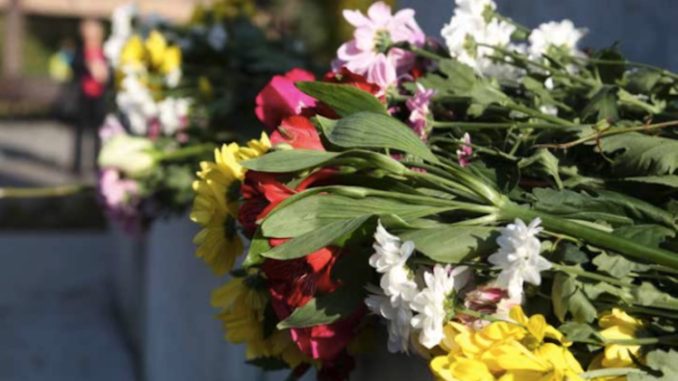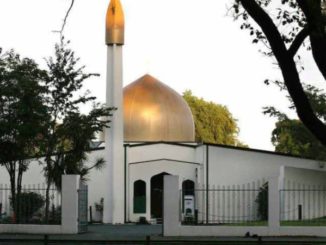
Massey University intelligence and counter terrorism specialist Dr John Battersby answers our questions on the report of the Royal Commission of Inquiry into the Christchurch terrorist attacks.
NZSM: The government has accepted all 44 recommendations of the report of this Royal Commission of Inquiry into the terrorist attacks of 15 March 2019. What, for you, are the standout recommendations?
JB: The government accepted the 44 recommendations ‘in principle’ but the finer detail of what the government’s position is remains to be seen. The report and recommendations, given the budget it had, the resources available to it, and the time it took – was large in volume but less incisive than it could have been, with an almost pro forma set of recommendations often seen in these post event assessments.
Of the more insightful observations the Royal Commission made was the lack of centralised and coordinated Counter Terrorism system – some of us had already published critiques of the public, bureaucratic and political disinterest in CT, but the Commission can be credited with casting a light on the need for a better level of coordination among government agencies which looks – from the outside at least – as a disconnected set of mutually exclusive half-formed parts.
However, the time-honoured recommendation to create yet another bureaucratic body which would add a further set of barriers through which information has to pass, and with which responses need to be coordinated, seldom solves the intelligence-sharing and coordination issues so common in this field.
Firearms regulations and licensing reform is long overdue. The licensing regime has been under-resourced for decades, and successive governments have shown little concern of the risks of an unregistered and growing national recreational arsenal.
The Thorp Inquiry report, which followed the Port Arthur mass shooting in Tasmania in 1996, recommended changes which were ignored; a coroner’s report called for reconsideration of the Thorp report after Jan Molenaar killed a police constable and held police off for three days in 2009. It’s no surprise therefore that our firearms regime features among several recommendations in the Royal Commission’s report. Maybe the government will listen and act this time.
I applauded the immediate cessation of over the counter sales of Military Style Semi-Automatics, but I was less sure that the buy-back and amnesty was required, or required so quickly. Those who surrendered their firearms had not done anything wrong and surely there was a way for government and gun owners to explore a solution which did not pitch them against each other.
Terrorism is the use of violence to influence the political environment inherently connected to a prevailing context– the Royal Commission’s recommendations toward social cohesion (as perfectly reasonable as they may be in themselves) will not socially engineer terrorism out of our society. No amount of policy on social cohesion would have eliminated the risk Timothy McVeigh, Anders Brevik or Brenton Tarrant presented. These men simply absented themselves from their mainstream societies, as terrorist groups and lone actors have always done and will continue to do.
NZSM: Where are the gaps and weaknesses?
JB: The report uses 15 March 2019 as the baseline event defining current and future terrorism. Given the terms of reference, there was a natural orientation to do this, but the Commissioners should have lifted themselves above it. Brenton Tarrant was an Australian, not a New Zealander, and his ‘radicalisation’ was almost exclusively fuelled online through largely US alternative-right, supremacist, and neo-Nazi influences. He was not drawn by any strong, extremist right-wing community here, nor did he find or connect with such a community when he got here.
Recommendations on social cohesion may well be taking us into the over-reaction error, common in CT responses – like the gun buy-back, applying a cure to everybody because a single individual was sick. Terrorism needs to be understood as a tactic used by those prepared to use violence – it is not defined by their ideological standpoints.
The Report asserts an inappropriate amount of security sector resource was given to Islamist extremism – and not enough on Right Wing Extremism, yet its own evidence undermines the assertion.
On Pages 400-405 the report cites 9/11 and 32 other international terrorist events as formative in shaping Five Eyes security arrangements between 2001 and 2018. Of these, 24 were militant Islamist attacks killing 4,069 people. Only 6 attacks listed over the period were carried out by Right Wing extremists, killing 111 people. On this evidence, it is difficult for the Royal Commission observation to stand.
A far better approach would have been to argue for a dispensing of labels identifying ideology – people can have a religion and uncompromising views yet be no risk to society.
It’s those people who advocate or actively seek to impose their views on the rest of us by threats and acts of violence who pose the risk, and it’s them we need to find a way of focusing our resources on that somehow avoids labelling whole communities as suspects.
Some solutions offered here would have been a major benefit because this is no new problem. The experiences of Muslims in the UK after the 7/7 bombings are almost identical to Irish people living in England during the Troubles.
NZSM: Are there areas beyond the terms of reference that might have been useful to look at?
JB: The terms of reference did not require the Royal Commission’s attention on successive government’s lack of attention to administration and resourcing of the Arms Act, or reviewing and amending policy and practice as clear indications of risks presented, as they were with mass shootings at Aramoana, Port Arthur, Raurimu and the Molinaar siege mentioned above.
The Royal Commission’s report mentions Operation Eight, but does not discuss it – due it being outside its terms of reference (but were there lessons here that may have been instructive?). Nor is the jaded and disinterested approach successive governments have taken to terrorism legislation since 2001 included in the terms.
This is all critical context, and consideration of the last 20 years of the evolution and development of modern terrorism could provide a better foundation for future policy than concentration on a singular event.
NZSM: The ‘private sector’ is mentioned eight times among the report’s 44 recommendations. What are your perspectives on where the report sees a role for the private sector, and which elements of the private sector are relevant here?
JB: There is a tendency among bureaucrats and politicians to believe they solve problems by appointing people at the top, when often the genuine work is done on the ground where people talk with each other and observe things.
In 1975 it was a simple burglar alarm that alerted police to three men attempting to break into the Horokiwi Quarry north of Wellington. Police responded and caught them – the men later admitted they were going steal gelignite to blow up an overseas diplomatic mission in Wellington.
In 1985 it was a sharp-eyed travel agent who spotted passport irregularities that led to the arrest of two DGSE agents involved in the bombing of the Rainbow Warrior.
Throughout the Northern Irish Troubles, or terrorist endeavours of the Weather Underground in the US, or the Baader Meinhoff Gang in Europe, it was often observant security guards, curious members of the public or police constables who noticed something out of place – and acted, preventing devastating events from occurring.
New Zealand overall has a lazy, complacent and very poor attitude to the risks that geopolitical changes, organised crime, cyberspace, climate change and terrorism will have on us, and while we certainly need leadership and direction in higher places, we all seem to think that security precautions are inconvenient and unnecessary.
This mindset has to change. What we actually need is a better understanding of security in general, a holistic approach to all risks, a better integration of public and private security approaches – and a genuine understanding that the little person actually matters. You ask which elements are relevant to the private sector, I’m going to ask which elements aren’t?
NZSM: What are your thoughts on the ability of government to effectively implement the report’s recommendations?
JB: The government needs to carefully consider which of the recommendations will actually genuinely make a difference. New Zealand has a terrorism history since 1968 of less severity and less frequency than many other countries, a lack of sequenced or organised terrorist violence and a pattern of intermittent and unconnected lone actors, often not linked to any overseas influence and usually failing to stimulate any following.
Clear and sensible arms regulations reform should, and I expect will, happen, but the broader based recommendations of social cohesion and coordinated government approaches may struggle to gain traction.
The problem is New Zealand has no clear terrorism risk – it has a potted history of one-time-only lone actors committing one-time-only acts. We also seem to have had a small number of wannabe actors, exhibiting desires to carry out acts of terrorism, but either being careless or incapable of actually doing so before being identified and caught by police.
This creates a very difficult environment in which the government and security agencies need to tread carefully, avoiding our old complacency but at the same time not overstepping the mark of a proportionate and effective response.
NZSM: Will New Zealand be safer as a result?
JB: Frankly, I do not believe we are in any greater danger of a terrorist attack now than we were before. Although, to be sure, we were always at greater risk before than most people realised.
Terrorism risk will not remain static, and is connected to political context. International terrorism trends need to be monitored because cyberspace connects us to everywhere else. Cyber activated and mobilised lone actors driven by one ideology or conspiracy theory or another may emerge at any time – we will see the idiots coming, but the genuinely careful planners and security conscious lone actors we can never be certain to catch.
Old leftist causes have long since died, but inactivity on climate change may well see increasing activism from the left that will drift toward violence to stimulate change, and more nuanced issues such as 1080 or our race relations may undulate as they have in the past.
Overall impetus to any one, or to all of these, could be derived from increasing economic disparity as New Zealand continues its failure to control living costs, fix regional disparities in opportunities and tolerates out of control house prices that threaten to make our children a generation of tenants.
New Zealand will only ever be as safe as our caution and consideration of possible risks allow it to be.









